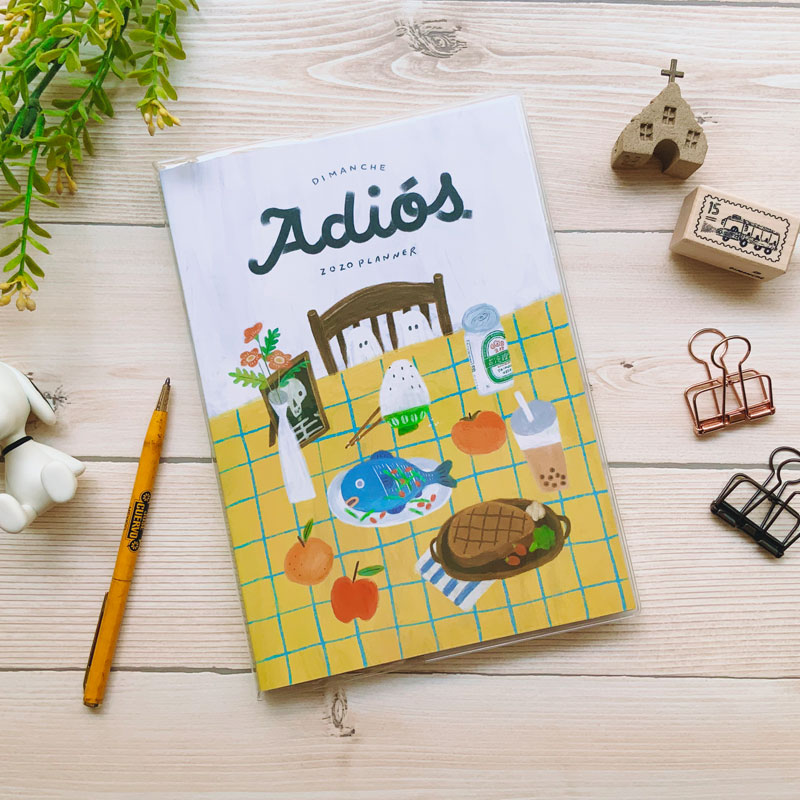"手账本——你的私人时间管理助手"
贺顶盎法纯洁了
2024-10-08 12:26:40
0次
手账本——你的私人时间管理助手
在繁忙的生活中,时间管理显得尤为重要。一个高效的时间管理助手可以助你事半功倍,其中手账本无疑是最受推崇的工具之一。作为你的私人时间管理助手,手账本不仅能帮助你规划时间,还能帮助你更好地管理生活和工作。
一、手账本的起源与种类
手账本源于日本,被广泛应用于生活和工作中的时间管理。随着时代的发展,手账本也呈现出多种形式和种类,如普通的纸质手账本、电子手账本等。每种类型的手账本都有其独特的特点和优势,选择适合你的手账本对于提升时间管理效率至关重要。
二、手账本的作用
1. 规划时间:通过在手账本上记录每天的计划,你可以清晰地了解自己的时间分配情况,合理规划时间,提高工作效率。
2. 提醒功能:在手账本上设置提醒功能,可以帮助你避免忘记重要事项或约定,提高工作效率。
3. 总结与反思:通过回顾过去一周或一个月的记录,你可以总结自己的工作和生活习惯,发现存在的问题并加以改进。
4. 激发创造力:手账本可以激发你的创造力,通过书写和规划,你可以更好地思考未来的计划和目标。
三、如何使用手账本进行时间管理
1. 明确目标:在开始使用手账本之前,先明确自己的目标和计划,确定每天、每周、每月的任务和目标。
2. 合理安排时间:根据任务的紧急程度和重要性,合理分配时间,确保重要任务得到足够的关注和资源。
3. 记录与反思:每天记录完成的任务和未完成的任务,并反思自己的工作和生活习惯,找出可以改进的地方。
4. 定期总结:定期回顾过去一段时间的记录,总结经验和教训,调整计划和目标。
四、手账本的英文翻译为"Personal Time Management Journal",作为你的私人时间管理助手,它可以帮助你更好地掌控生活和工作中的时间分配。以下是一些与手账本相关的英文短语翻译:
1. Plan in the journal - 在手账本中计划
2. Record daily schedule - 记录每日日程
3. Set reminders - 设置提醒功能
4. Reflect on the past - 对过去进行反思
5. Adjust plans - 调整计划 6. Organize time effectively - 有效组织时间 7. Improve productivity - 提高工作效率 8. Journal as a tool for creativity - 手账本作为创造力的工具 五、总结 手账本作为你的私人时间管理助手,不仅可以帮助你规划时间、设置提醒功能、总结和反思生活和工作中的经历和教训,还能激发你的创造力,提高你的工作效率。在如今这个信息爆炸的时代,我们都需要一个能够助我们一臂之力的工具来帮助我们更好地管理时间和生活。因此,不妨试试使用手账本吧! Personal Time Management Journal - Your Private Assistant for Managing Time In the busy life, time management becomes particularly important. An efficient time management assistant can help you achieve more with less effort, and the personal time management journal is undoubtedly one of the most respected tools. As your private time management assistant, the personal time management journal not only helps you plan your time but also manages your life and work better. Firstly, the origin and types of the personal time management journal. It originated in Japan and is widely used in life and work for time management. With the development of the times, there are various forms and types of personal time management journals, such as ordinary paper-based journals and electronic journals. Each type of personal time management journal has its unique characteristics and advantages, so choosing a suitable one is crucial for improving time management efficiency. Secondly, the role of the personal time management journal. It helps you plan your time by recording daily plans in the journal, clearly understanding your time allocation and improving work efficiency through reasonable planning. It also has reminder functions to help you avoid forgetting important matters or appointments and improves work efficiency. In addition, it helps you summarize and reflect on your work and life habits by reviewing the records of the past week or month, discover problems and make improvements. Moreover, it can stimulate your creativity by writing and planning, allowing you to better think about future plans and goals. Thirdly, how to use the personal time management journal for time management. Firstly, clarify your goals and plans before starting to use the journal, determine daily, weekly, and monthly tasks and objectives. Secondly, allocate time reasonably according to the urgency and importance of tasks to ensure that important tasks receive sufficient attention and resources. Thirdly, record and reflect on the tasks completed and those not yet completed, as well as your work and life habits to identify areas for improvement. Finally, regularly review the records over a period of time to summarize experiences and lessons learned, adjust plans and goals.相关内容
热门资讯
探索手账本的多重用途:从学习到...
手账本多重用途:学习记录计划与笔记、思维导图等,生活用于日程管理、购物清单、财务记录等,特殊用途如手...
艺术与实用的结合:手账本的多种...
手账本兼具实用与艺术,可记事、规划、创作和收藏。可记录日程、灵感和财务,美化绘画和创作故事,还可制作...
掌握手账本使用方法,提高效率
掌握手账本使用方法,对提高效率至关重要。选择合适的手账本,规划好结构,坚持记录并定期回顾与调整,可帮...
"手把手教你如何使用手账本"
摘要:
本文详细介绍了如何使用手账本,包括选择合适的手账本、规划页面布局、记录日程和待办事项等基本...
"记录生活的每一刻:如何使用手...
使用手账本记录生活点滴,需先准备本子和辅助工具,规划主题和版面,记录日常和特殊时刻,并定期回顾反思。...
手账本使用全攻略:从入门到精通
**手账本全攻略摘要**:
选择合适的手账本并明确使用目的,学习基础记录方法和多功能页面运用,养成...
记录生活,规划未来:手账本的使...
手账本实用工具,记录生活、规划未来。明确目的、合理布局、使用技巧,保持整洁。分享心得,培养习惯,提高...
从入门到精通:手账本的五大必备...
本文介绍了手账本的五大必备功能:日程规划、待办事项、笔记记录、心情日记和装饰美化。从入门到精通,讲解...
手账本记录美好生活点滴
手账本记录生活点滴,留住美好回忆。通过文字、画图和贴纸等方式,记录日常琐事、心情、旅行经历等,让生活...
高效生活必备:手账本的使用技巧...
手账本为现代生活必备工具,可规划时间、记录生活。选择合适手账本,规划记录,使用技巧及心得分享包括坚持...

